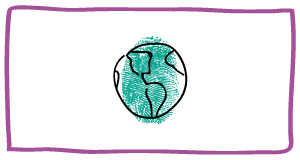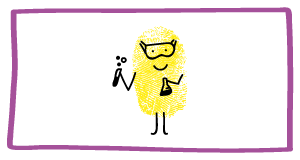Dubai Abulhoul: Preparing Emirati youth for the UAE Centennial 2071 Project
Last March, the UAE Centennial 2071 Project was launched by the UAE Cabinet with the goal of making the UAE the best country in the world by the year 2071. Announcing the news on Twitter, His Highness Sheikh Mohammed Bin Rashid Al Maktoum, Vice President and Prime Minister of the UAE and the Ruler of Dubai, stated that the UAE Centennial 2071 Project was launched “to put in place a vision that extends to five decades and to prepare the nation for future generations”. Annual meetings will be held every September to bring together all government entities in order to discuss the challenges and strategies for achieving the project’s goals.
When I first heard about the launch of the UAE Centennial 2071 Project, my first instinct was to calculate how old I would be in the year 2071. I would be 75 years old at the time. I have, on occasion, amusingly joked about how I envision my life to be when I turn 40, or even 50, years old, but 75 was somewhat of a stretch for my imagination. I was then reminded of a beautiful Greek proverb that says: “A society grows great when its people plant trees whose shade they know they will never sit in.” I couldn’t think of a better quote to describe what the launch of the UAE Centennial Project 2071 will do for future Emirati generations. I also couldn’t help but think of what kind of social, educational, and technological challenges we might face not only in the year 2071, but also in all the years leading up to that. It is no doubt an immense task and responsibility we now have as Emirati youth to turn that vision into a reality, but our work and effort pales in comparison to all that our country has given, and will continue to give us, throughout our lives.
Preparing for the above task will definitely require a multifaceted approach, but familiarising ourselves with the educational disciplines that are vital to our understanding of what ‘the future’ can potentially look like is a first step we can collectively take. Future studies, which is also referred to as strategic foresight, is often defined as a future-oriented educational discipline that focuses on future forecasts, alternative scenarios, and calculated predictions. Strategic foresight gathers insights from current trends across all fields and sectors, and uses that information to identify, and in some cases prevent, future threats and scenarios before they even occur. Due to the increasing rate of technological advancement, jobs that exist today will evolve in unrecognisable ways in the next few years, and some fields and professions will disappear altogether within the next decade or two. How can younger generations be better informed about the analytical skills and concepts they will need to prepare for the challenges and opportunities that await them in the next few decades?
The Ministry of Education is a key stakeholder in regards to introducing future studies and strategic foresight to younger generations, of all academic levels. Elementary school students already exhibit what are arguably the most important traits required for producing future forecasts and foresights: unlimited creativity and boundless imagination. Harnessing the power of children’s creativity and imagination is important in providing them with a future-oriented framework that their young minds will grow into as they progress from one academic level to another. Elementary school students can even produce future scenarios we haven’t thought of or taken into account before. It is, after all, much more difficult to convince an adult that the future of transportation includes flying cars than it is to convince a child. At both the middle and high school level, future studies as a subject can be introduced to public school curriculums, and applied to an extensive range of topics that students are passionate and curious about. In regards to higher education, strategic foresight and future studies are taught at both the undergraduate and graduate levels in many universities around the world, with top programmes in both China and Australia. The Dubai Future Academy has also recently launched a Master’s degree in Applied Future Sciences, which is a great step in the right direction. Setting up scholarship programmes for Emirati students interested in this field, prioritising the study of this major, and even introducing future studies electives, which can then evolve into majors and minors, in public universities are only a few of the educational initiatives that can take place in light of the UAE Centennial 2071 Project mandate and goals.
In 2071, the Emirati youth of today will hand over their collective legacy to the Emirati youth of tomorrow. The then-20 year olds will eagerly ask us, their seventy-year-old elders, about what our role was in bringing the UAE Centennial 2071 Project to life, and how we contributed to the goal of making the UAE the best country in the world. How we answer that question will depend not only on the work we plan to do in the next fifty years, but also on what each and every one of us as Emirati youth do in the next twenty-four hours. And in the twenty-four hours after that. What we do today, not only what we do tomorrow.
So, Emirati youth, what will our answer be?
Read more: http://gulftoday.ae/portal/732f1310-4f44-44a7-b2af-5d55c58a932e.aspx






